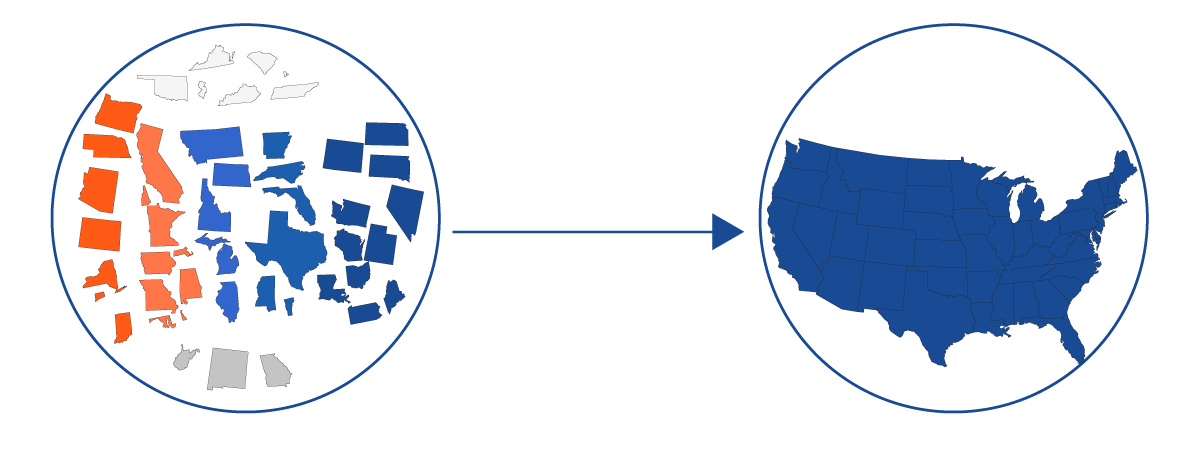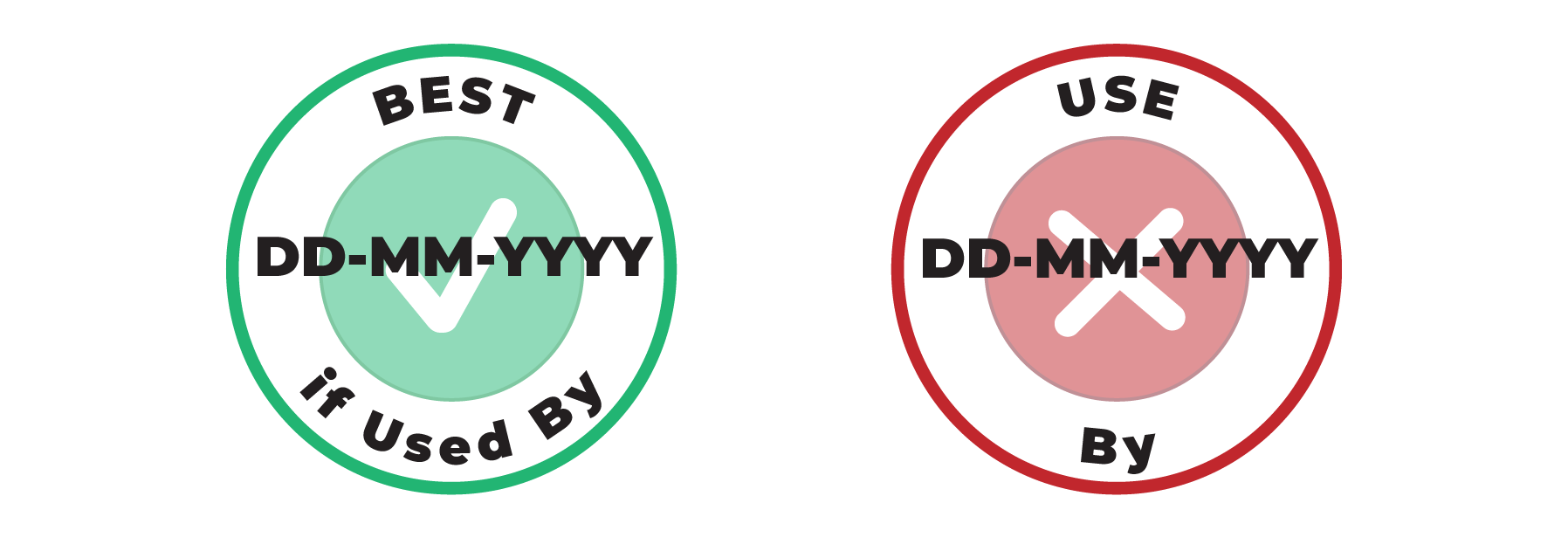To reduce food waste in the United States, we must reform date labeling practices to achieve three key objectives, all of which are addressed in the recently reintroduced Food Date Labeling Act (H.R. 3159 / S. 1484).
1. Pass legislation to standardize date labels.

Federal action is necessary to fix our broken system of date labels on foods. Congress should pass legislation to ensure that standard labels are used across the country on all foods.
Federal legislation should require that manufacturers or retailers who choose to affix date labels on foods use one of two prescribed labels—BEST If Used By for foods labeled to indicate quality, and USE By for food labeled to indicate increased safety risk past the date. The legislation should prohibit businesses from using any date labeling language aside from these two standard phrases.
While a step in the right direction, state-level solutions or voluntary efforts, such as industry’s voluntary Product Code Dating Initiative, are not sufficient to reduce food waste on a wide scale. State policies already vary greatly, and the voluntary standards conflict with state date labeling laws in more than half of states. Federal action would supersede these and provide one standard for food businesses and consumers to use and to understand.
We are currently tracking legislation at the federal level to standardize food date labels. Learn more here.
2. End bans on the sale or donation of food past its quality-based date label.

Many states restrict the sale or donation of foods past the date label, regardless of what the label means. This means that in many cases, even if the label is a freshness or quality indicator, food cannot be donated past the affixed date.
Federal legislation should preempt these unreasonable donation bans and prohibit state or local bans on donation of foods with past quality-based date labels. This would reduce the waste of wholesome food and encourage donation rather than waste.
3. Educate consumers.

Educating consumers about the meaning of the standard date labeling terms is essential to ensure that consumers make informed decisions about when to discard food products.
However, until date labels are fully standardized across all foods, it will be difficult to launch a consumer education campaign or meaningfully change public perceptions of date labels. Combining standardized language with consumer education has the potential to drastically reduce the unnecessary waste of wholesome foo and save consumers money.
Federal legislation should require USDA and FDA to launch a consumer education initiative to educate the public on the meaning of the two standard date label phrases required by the legislation. As trusted government agencies charged with protecting consumers, USDA and FDA are in a unique position to reduce confusion around date labels.




